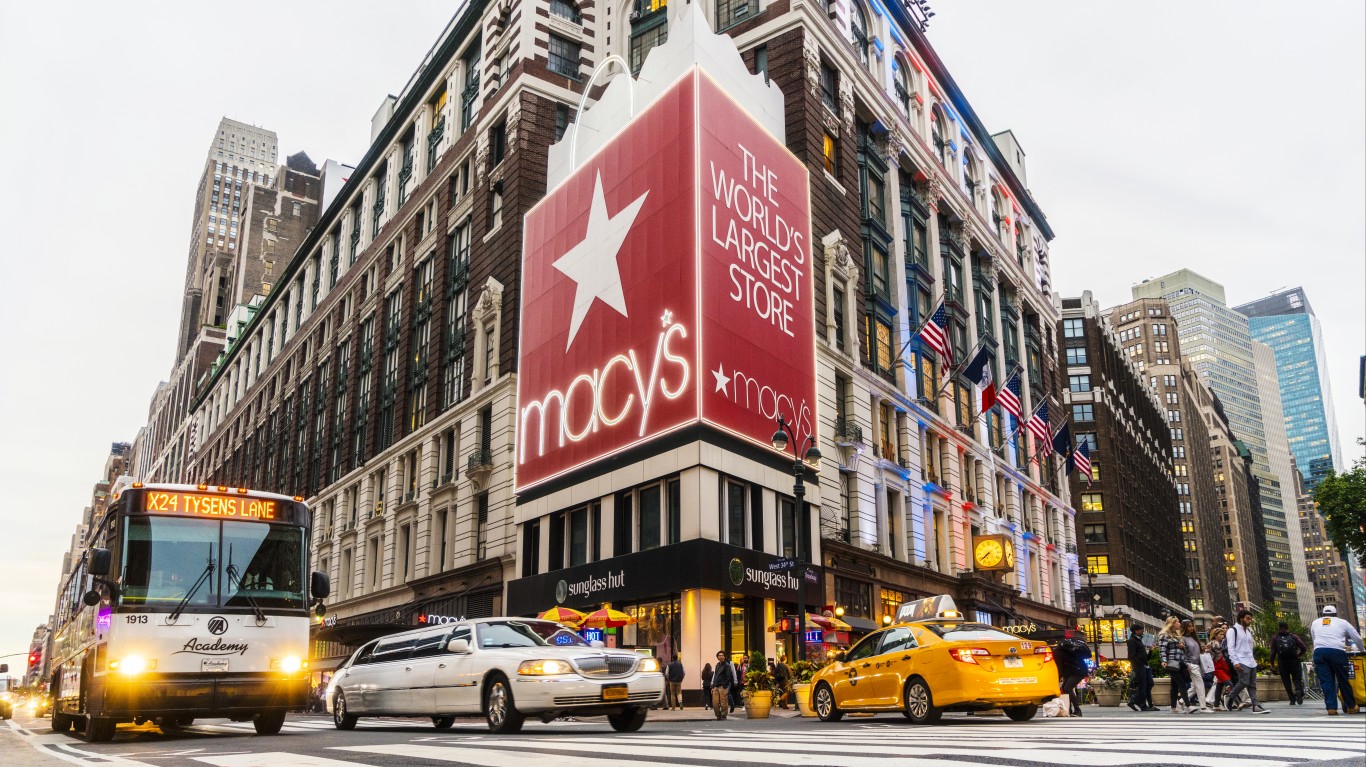
It’s no secret that department stores have been struggling, with one exception. That exception is not Macy’s Inc. (NYSE: M). After falling to around $4.00 a share immediately after the pandemic hit, the stock closed Friday at about 5.5% above its January 2020 high of $16.50. The stock has dropped about 16% for the year.
Shares soared by more than 23% in Monday’s premarket trading session following a Sunday report that two firms with a stake in the department store firm have offered to buy it for $5.8 billion. At Friday’s closing price, Macy’s market cap was around $4.77 billion.
The buyout offer
The offer was reportedly made on December 1, according to an exclusive report in The Wall Street Journal, citing people familiar with the matter.
Arkhouse Capital Management, a real estate investment firm, and Brigade Capital Management, a global asset manager, have offered to buy all Macy’s shares that they don’t already own for $21.00 a share. The price represents a premium of around 32% to the stock’s closing price on November 30.
Neither the buyout group nor Macy’s has commented on the report.
Macy’s value
According to its October quarter earnings report, revenue dropped 7.1% year over year, with both online sales and brick-and-mortar sales dropping by equal amounts. Same-store sales were also down 7%. Gross margins rose by 110 basis points and adjusted EPS came in at $0.21, down by more than half year over year, but better than the expected break-even result analysts expected.
The company’s property and equipment was valued at $5.81 billion. Current assets were valued at $7.07 billion, including $6.05 billion in inventory.
The company operates about 500 Macy’s stores and more than 30 Bloomingdale’s high-end department stores.
Will Macy’s survive?
If the report is accurate, the potential buyers don’t appear to have much interest in Macy’s business. One possible outcome would be selling off the real estate and spinning off the online business. But that leaves no room for reviving the brick-and-mortar business.
Macy’s CEO, Jeff Gennette, will retire in February and be replaced by Tony Spring, currently CEO of Bloomingdale’s. Does this figure into the timing of the offer?
It’s also worth noting that 12 institutional investors own more than half the outstanding shares. How they react to the offer will play a decisive part in the ultimate outcome.
In 20 Years, I Haven’t Seen A Cash Back Card This Good
After two decades of reviewing financial products I haven’t seen anything like this. Credit card companies are at war, handing out free rewards and benefits to win the best customers.
A good cash back card can be worth thousands of dollars a year in free money, not to mention other perks like travel, insurance, and access to fancy lounges.
Our top pick today pays up to 5% cash back, a $200 bonus on top, and $0 annual fee. Click here to apply before they stop offering rewards this generous.
Flywheel Publishing has partnered with CardRatings for our coverage of credit card products. Flywheel Publishing and CardRatings may receive a commission from card issuers.
Thank you for reading! Have some feedback for us?
Contact the 24/7 Wall St. editorial team.








